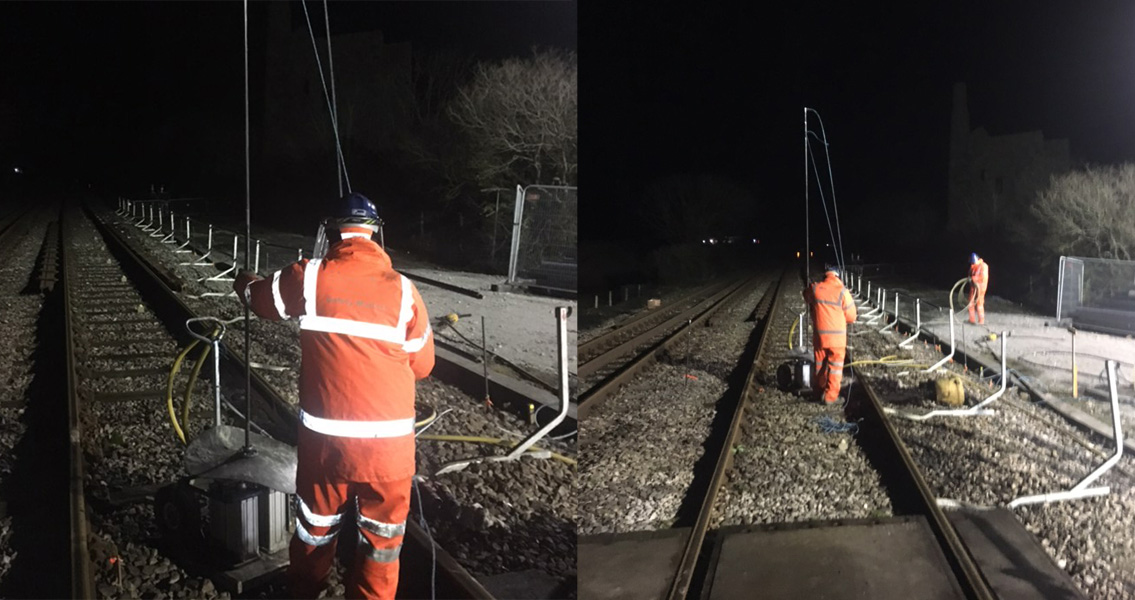Scorrier - Great Britain
In Scorrier, a village in the southwest of England, the embankment of a railway line was determined to be at risk due to ground instability. In the course of the remedial work, a highly adaptable injection resin system developed by MC-Bauchemie was found to be particularly suitable for consolidating the underlying soil.
Name
Stabilisation of a railway embankment
Country
Scorrier - Great Britain
Categories
The small village of Scorrier is located in Cornwall at the southwest tip of England, some 5 km from the county’s northern coast at Porthtowan. First mentioned by name in 1330, the village is located in the middle of the Gwennap Mining District, a tin mining area exploited for centuries by interests extending across the Cornwall and West Devon regions.
Danger underground
It was here that the integrity of a rail embankment was in jeopardy: The soil under the embankment had become unstable due to the shaft of a tin mine apparently having been insufficiently infilled when it was closed. Given the danger to train safety that this potentially represented, line operator Network Rail initiated immediate action to restore ground stability deep below the track.
First choice for ground consolidation
The main contractor commissioned with planning the work was Balfour Beatty plc headquartered in London. The objective was to inject the soil over and inside the old mine to a stiffness value above 70 kN/m², for which purpose the SSI Services department of Walsall-based South Staffordshire plc, proven specialists in this kind of work, was engaged. It was jointly agreed that a low-viscosity polyurethane-based duromer resin should be used in order to seal and consolidate the voids and crevices in the loose ground.

Some of the injection work at the railway near by Scorrier was carried out at night.
© MC-Bauchemie 2018
Initial training was provided in Nottingham by MC for the technicians of the injection contractor in order to ensure that the work could be successfully executed from the outset. Attention then switched to the site in Cornwall. With numerous probe tests having been completed, the requisite injection depths were found to extend from 5 metres to a maximum of 12 metres. The ground of mudstone and sandy silt was of poor quality, requiring a tight grid of injection points with centres of just 1.5 metres.
Injection success
The injection lances were installed accordingly. Featuring a mix design aligned to the application requirements, the special two-component resin was then injected into the soil together with foam stabiliser additives. With its short reaction time, the injection resin quickly set to high compression and flexural strength values. It also readily satisfied the principal ground injection specifications: With 24 tonnes of the specially formulated injection mix having been used in the project, the ground stiffness value of > 70 kN/m² required by Network Rail was reliably achieved throughout the treated area. As a further safeguard, the stabilised soil was subsequently overslabbed with concrete, ensuring that rail operations could once again return to smooth-running normality.
We are continuously improving our website and we use cookies for this purpose. For an optimal user experience, we recommend that you accept them. Otherwise, parts of the page will be deactivated in the display in accordance with data protection regulations.